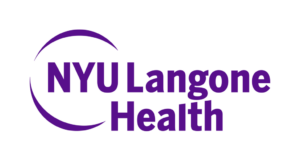2025 IAPHS CONFERENCE
“COMMUNITY ENGAGEMENT IN POPULATION HEALTH SCIENCE”
SEPTEMBER 8-11, 2025 – PITTSBURGH, PENNSYLVANIA

As the Founding Director of the AAMC Center for Health Justice and Senior Director, Health Equity Research & Policy at the Association of American Medical Colleges (AAMC), Philip sparks, supports, and contributes to community-driven, multi-sector efforts that build evidence for programs, policies, practices, and partnerships that eliminate health inequities.
He is a population health scientist whose singular professional commitment to health equity research and action spans nearly 25 years. He is widely published, a frequent public speaker, and has served on advisory boards and expert panels for numerous organizations and federal agencies including the Centers for Disease Control and Prevention, the National Institutes of Health, and the Centers for Medicare & Medicaid Services. He is also the current President of the Interdisciplinary Association for Population Health Science. In 2021, Philip founded the AAMC Center for Health Justice as the natural next step in a career focused on building evidence in support of the structural changes needed to ensure all communities thrive.
Prior to joining AAMC in 2012, Dr. Alberti led research, evaluation, and planning efforts for a Bureau within the New York City Department of Health and Mental Hygiene that worked to promote health equity between NYC neighborhoods. He holds a Ph.D. degree in Sociomedical Sciences from Columbia University’s Mailman School of Public Health and was a Fellow in the National Institute of Mental Health’s Psychiatric Epidemiology Training program.

Inequities in health are ubiquitous. Using expertise in medical sociology, health demography, and health policy, Elaine Hernandez aims to understand the social, structural, and biological processes that create and perpetuate these inequities. Funded by the Robert Wood Johnson Foundation, the National Institutes of Health, and the National Science Foundation, her work has been published in sociology (Social Forces, Journal of Health and Social Behavior, Social Science & Medicine, Society & Mental Health), demography (Demography, Population Bulletin), social networks (Social Networks), and medical (JAMA Pediatrics) journals. She has been elected to serve in leadership positions for the American Sociological Association as well as the Interdisciplinary Association for Population Health Sciences and has served on editorial boards for the Journal of Health and Social Behavior and Social Science & Medicine –Mental Health. In the classroom, she teaches graduate and undergraduate level courses related to the medical sociology, including courses that help prepare premedical students for the revised medical college admission test. As a current RWJF Interdisciplinary Research Leader Fellow, her Indiana based team is collaborating with communities across the state to understand health care access.

Matthew Lee, DrPH, MPH, is an Assistant Professor in the Section for Health Equity and Division of Health & Behavior within NYU Grossman School of Medicine’s Department of Population Health. Dr. Lee earned their masters and doctorate in Sociomedical Sciences from the Columbia University Mailman School of Public Health and is a former Robert Wood Johnson Foundation Health Policy Research Scholar. As a community-engaged health policy implementation scientist, Dr. Lee’s research applies participatory approaches and mixed methods to critically examine the reach and impact of policies and evidence-based interventions within structurally underserved communities. Specifically, Dr. Lee is focused on improving the equitable implementation and sustainability of policies and programs to eliminate health disparities and advance health justice and has published this research in peer-reviewed journals including the American Journal of Public Health, Social Science & Medicine, Translational Behavioral Medicine, Health Services Research, International Journal of Behavioral Medicine, and Implementation Science Communications. Dr. Lee’s research has been supported by the National Institutes of Health (NIH), the Centers for Disease Control and Prevention (CDC), and the Robert Wood Johnson Foundation (RWJF).

Keshia Pollack Porter, PhD, MPH, is a Bloomberg Centennial Professor and the Bloomberg Centennial Chair of the Department of Health Policy and Management at the Johns Hopkins Bloomberg School of Public Health. Dr. Pollack Porter is a health equity scholar who promotes Health in All Policies and works across sectors to address the structural drivers of health and policy change. Dr. Pollack Porter also directs the Health Policy Research Scholars – a national program of the Robert Wood Johnson Foundation. She is also an elected member of the National Academy of Medicine (Class of 2023).
Elisabeth Stelson
Elizabeth L Cope
Gabe Miller
India J Ornelas
Juan A. Echenique
Kaleea Lewis
Les Kirchner
Mandy Hill
Megan Todd
Nishat Tasnim Koli
Rachel Bergmans
Rita Hamad
Stuti Das
Yingyi Lin
Yue Sun
THANKS TO OUR 2025 CONFERENCE SPONSORS!

